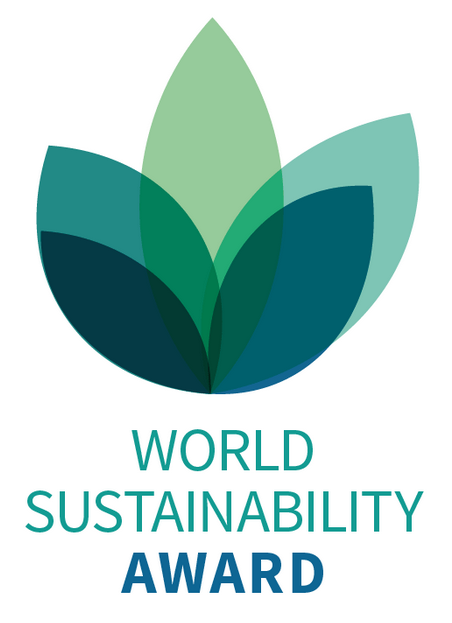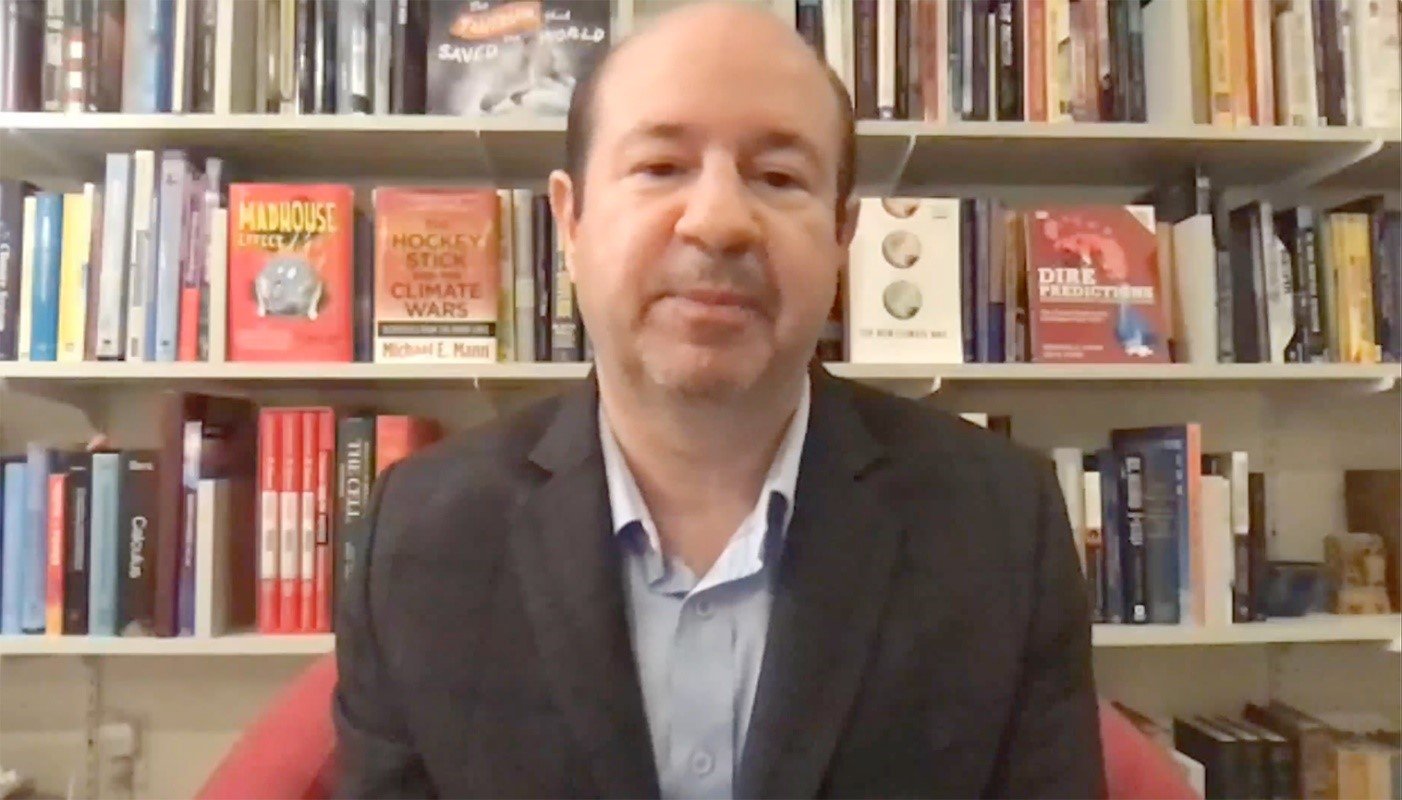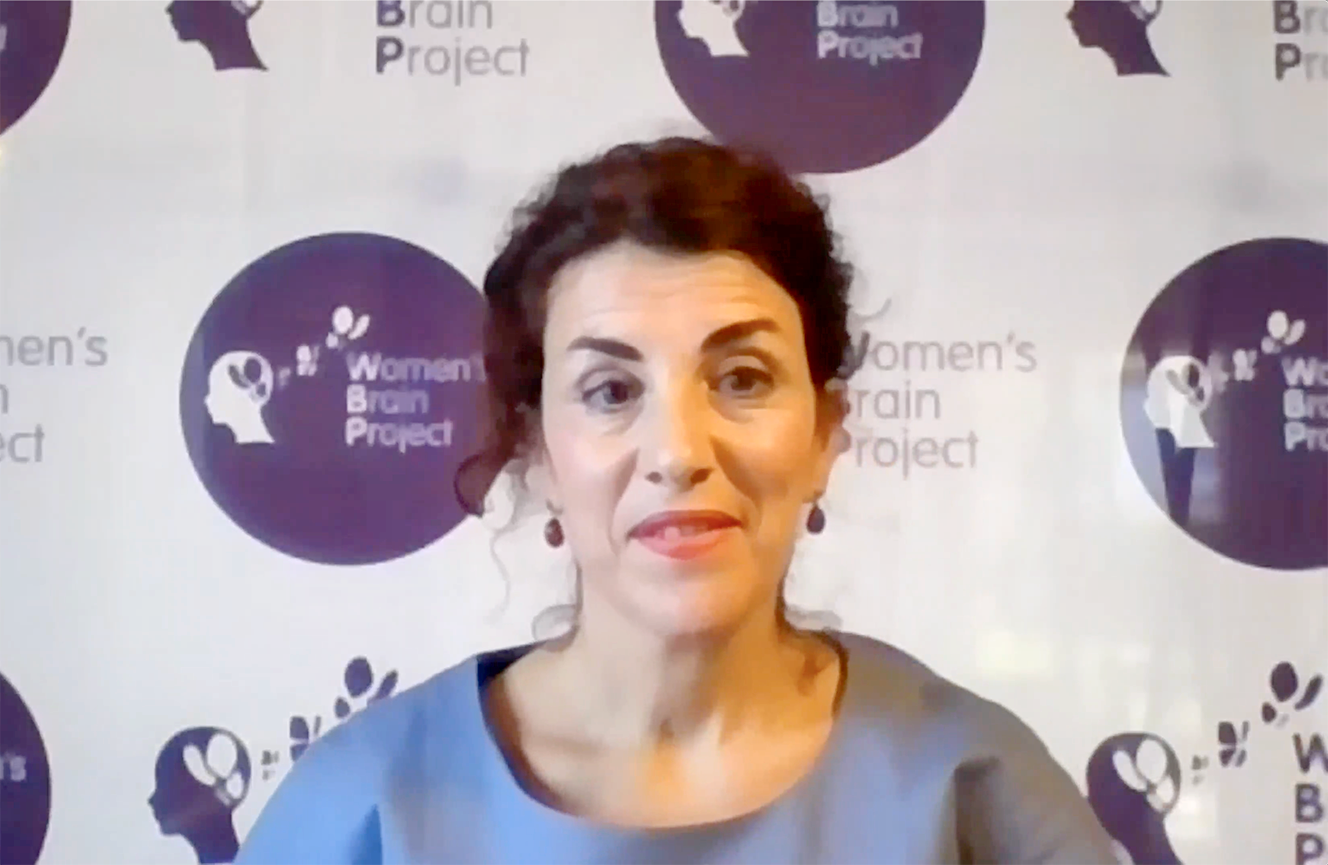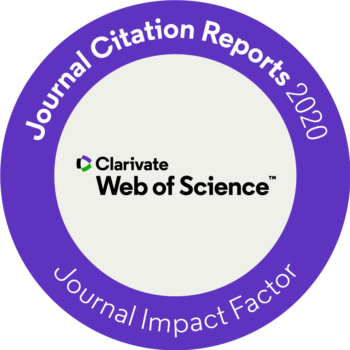
Journal Menu
► ▼ Journal Menu-
- Sustainability Home
- Aims & Scope
- Editorial Board
- Reviewer Board
- Topical Advisory Panel
- Instructions for Authors
- Special Issues
- Topics
- Sections & Collections
- Article Processing Charge
- Indexing & Archiving
- Editor’s Choice Articles
- Most Cited & Viewed
- Journal Statistics
- Journal History
- Journal Awards
- Society Collaborations
- Conferences
- Editorial Office
Journal Browser
► ▼ Journal BrowserNeed Help?
Announcements
11 December 2020
2020 "Highly Cited Researchers" on MDPI Journal's Editorial Boards
We are pleased to acknowledge that many academic editors who have made an impact on MDPI journals as editorial board members, editors-in-chief, or section editors, are recognized as 2020 Highly Cited Researchers by Clarivate.
Highly Cited Researchers highlights the top 1% of researchers, by citations, in one or more of the 22 fields used in Clarivate Analytics Essential Science Indicators. We offer our congratulations to 279 academic editors of MDPI journals who were recognized as the most influential scholars in their fields in 2020.
Adams, Dave Agarwal, Ravi P. Ahn, Choon Ki Ahn, Myung-Ju Albrecht, Randy A. Andersson, Dan I. Anker, Stefan D. Apergis, Nicholas Ariga, Katsuhiko Artaxo, Paulo Balsamo, Gianpaolo Barba, Francisco J. Benediktsson, Jon Atli Benelli, Giovanni Bhatnagar, Amit Bialystok, Ellen Blaabjerg, Frede Blay, Jean-Yves Bogers, Marcel Bolton, Declan J. Boyer, Cyrille Brocca, Luca Bruix, Jordi Buhalis, Dimitrios Burdick, Jason A. Byrd, John C. Cabeza, Luisa F. Cabrerizo-Lorite, Francisco Javier Cai, Jianchao Calhoun, Vince D. Cantu, Robert C. Cerqueira, Miguel Chang, Jo-Shu Chau, Kwok-wing Chemat, Farid Chen, Jianmin Chen, Jun Chen, Min Chen, Shaowei Chen, Wei Chen, Wei-Hsin Chen, Xiaofeng Chen, Yangkang Chen, Zhi-Gang Chiclana, Francisco Corella, Dolores Cortes, Javier Cortes, Jorge Cummings, Kenneth Michael Dai, Shifeng Decker, Eric A. DePinho, Ronald A. Dimopoulos, Meletios-Athanasios Dincer, Ibrahim Du, Yihong Dupont, Didier Edwards, David Ellahi, Rahmat Ellis, Erle C. ElMasry, Gamal Esteller, Manel Estruch, Ramón Fang, Chuanglin Fasano, Alessio Fernandez-Lafuente, Roberto Ferreira, Isabel Fortino, Giancarlo Galluzzi, Lorenzo Galvano, Fabio Gandomi, Amir H. Gandomi, Amir H. Gao, Bin Gao, Feng Gao, Wei Garbe, Claus García, Hermenegildo Geschwind, Daniel H. Giampieri, Francesca Giralt, Sergio A. Glanz, Karen Goldewijk, Kees Klein Gössling, Stefan Govindan, Kannan Granato, Daniel Grosso, Giuseppe Grosso, Giuseppe Guerrero, Josep M. Haase, Dagmar Hagger, Martin S. Hamblin, Michael R. Han, Heesup Jankovic, Joseph Janotti, Anderson |
Jiang, Hai-Long Kalaji, Hazem M. Kalantar-Zadeh, Kourosh Kaner, Richard B. Karimi, Hamid Reza Kataoka, Kazunori Keesstra, Saskia Kepp, Oliver Kerminen, Veli-Matti Keyzers, Robert A. Khademhosseini, Ali Khan, Nafees A. Kim, Ki-Hyun Klemeš, Jiří Jaromír Klenk, Hans-Peter Konopleva, Marina Y. Krammer, Florian Krebs, Frederik C. Kroemer, Guido Kudo, Masatoshi Kurths, Juergen Kurzrock, Razelle Kuznetsov, Nikolay V. Kyrpides, Nikos C. La Vecchia, Carlo Lai, Yuekun Lam, James Lancellotti, Patrizio Lee, Sangmoon Leung, Victor C. M. Li, Jinghong Li, Yurui Lindahl, José M. Merigó Lip, Gregory Y. H. Loh, Xian Jun Long, Hualou Lund, Henrik Luo, Jingshan Luque, Rafael Lyons, Timothy W. Ma, Jun Ma, Wen-Xiu Ma, Yanming Maeda, Keisuke Makarova, Kira Mantovani, Alberto Martín-Belloso, Olga Martinoia, Enrico Marzband, Mousa Masclaux-Daubresse, Celine Masson, Patrick Mateos, María Victoria Mathiesen, Brian Vad Matyjaszewski, Krzysztof McArthur, Grant A. McCauley, Darren Medlock, Jolyon M. Melero, Ignacio Mezzetti, Bruno Miroshnichenko, Andrey E. Moran, Daniel Mueller, Lukas A. Mueller-Roeber, Bernd Naushad, Mu Nemeroff, Charles B. Nieto, Juan J. O'Donnell, Colm Ogino, Shuji Olabi, Abdul-Ghani O'Regan, Donal Orsini, Nicola Oswald, Isabelle P. Ozcan, Aydogan Pahl-Wostl, Claudia Pang, Huan Payne, James E. Peng, Shushi Perc, Matjaz Perez-Alvarez, Jose Angel Piquero, Alex R. Ploss, Alexander Postolache, Mihai Pradhan, Biswajeet Prinsep, Michele R. Qian, Dong Qu, Xiaogang Reiter, Russel J. Riahi, Keywan Richter, Andreas Rignot, Eric Robert, Caroline Ros, Emilio Rosell, Rafael |
Rosen, Marc A. |
The full list of 2020 Highly Cited Researchers can be accessed on https://recognition.webofsciencegroup.com/awards/highly-cited/2020/
--- Highly Cited Researchers (HCR) is a Clarivate product.
8 November 2020
The UN Sustainable Development Goals: an Interdisciplinary Academic Introduction

EdX MOOC “The UN Sustainable Development Goals: An Interdisciplinary Academic Introduction” (University of Leuven)
Climate change, pandemics, poverty, hunger, energy, conflicts,… These are big challenges the humanity is facing today, and they are all interrelated. To overcome such systemic issues, we need to step up actions at all levels.
In 2015, the United Nations have adopted the 17 Sustainable Development Goals (SDGs) in the 2030 Agenda for Sustainable Development, a framework of goals to build a better, more viable and sustainable world for all by 2030. This framework is a powerful tool to translate sustainability commitments into concrete actions at all levels, from the local to the global. But five years into the SDGs, how well do you know about them? How did they came up to be? How are they structured? What challenges do they face?
The EdX MOOC “The UN Sustainable Development Goals: an Interdisciplinary Academic Introduction”, developed by the University of Leuven (Belgium), unravels the complex web of the 17 SDGs and explains their emergence, structure, and interrelatedness. In a systematic manner, the course explores the background and the reality of each of the SDGs, and reflects on the challenges they are confronted with.
The course is taught by an interdisciplinary team of academic experts from the University of Leuven, as well as by practitioners in the field. Throughout the 6 modules, you will explore the concept of sustainable development and each of the 17 SDGs through videos complemented by reading materials. The discussion platforms and activities will offer you the opportunity to exchange with your peers on some of the most salient sustainability issues globally as well as to share your own experiences in contributing to the SDGs in your daily life.
The course consists of 6 modules and takes approximately 25 hours to complete, which you can do at your own pace up until 25 October 2021. As it is 100% online, it is entirely COVID-safe and you can take it from wherever you want.
As an introductory course, this MOOC is targeted at anyone with any educational or professional background who is interested in understanding how the ambitious 2030 Agenda and its SDGs aim to solve global issues.
Interested? Join over 5000 participants around the world and enroll now: https://www.edx.org/course/the-un-sustainable-development-goals-an-interdisci
What learners have said about the course…
“This was a great introductory course to the SDGs and now I feel a lot more confident in the holistic aspect of sustainability!”
“I liked the interactive material. Breaking it up with videos and little finger exercises was really excellent and a great way to reflect critically on the goals without spending too much time and effort on each task (manageable for us with busy schedules!). The content addressed both criticisms, trade-offs and synergies, giving a very realistic outlook on the SDGs and inspires us to think about how we can reform, adapt and continue making progress.”
“The course is very well-designed in term of contents and how lecturers analyze each goal and give examples.”
“The MOOC was really good to broaden my horizon. It was clearly divided according to the goals, so I could easily follow the lectures. I could understand the importance of SDGs for all actors in public and private sectors.”
26 October 2020
Meet us at the China Materials Conference and Exhibition 2020, Qingdao, Shandong, China, November 19–21, 2020

MDPI will be attending the China Materials Conference and Exhibition 2020, Qingdao, Shandong, China, November 19–21, 2020.
CMC's 19th annual meeting is the premier venue for the presentation in the field of materials sciences, where one can learn from experts, forge collaborations with peers, explore new tools and technologies, and advance their career.
The purpose of the conference is to build an exchange platform for experts, scholars, professors, scientific and technological workers, relevant government management departments and leaders, entrepreneurs, and related personnel, engaged in the scientific research, development, and industrialization of new materials in China to exchange and share the latest materials research achievements, in order to achieve the purpose of mutual promotion and common improvement.
There are many outstanding people in the committee of the meeting, such as Professor Boyun Huang and Academician Lian Zhou of the Chinese Academy of Engineering, Professor Bingbo Wei of the Chinese Academy of Sciences, etc. The following MDPI journals will be represented:
- Coatings (leading journal);
- Materials;
- Crystals;
- Energies;
- Molecules;
- Metals;
- Nanomaterials;
- Polymers.
- Actuators
- Sustainability
- Membranes
- Technologies
- Gels
- ASI
If you are also attending this conference, please feel free to stop by our booth (Booth C13). Our delegates look forward to meeting you in person to answer any questions you may have. For more information about the conference, please visit: http://cmc2020.medcon.net.cn/cn/web/index/
24 September 2020
Announcing the Recipients of the 2020 World Sustainability Award and Emerging Sustainability Leader Award
BASEL, Switzerland, Sept. 16, 2020 — The recipients of the World Sustainability Award and Emerging Sustainability Leader Award are chosen from nominees by a Selection Committee consisting of seven members, including permanent members Dr. Shu-Kun Lin, founder and President of MDPI and founder and chairman of the MDPI Sustainability Foundation, and Prof. Dr. Ed Constable, former Vice President for Research of the University of Basel.
The five non-permanent members of the selection committee consist of a university professor from the Scientific Board of the journal Sustainability, a university professor from the university hosting the respective World Sustainability Forum, and a representative from an intergovernmental organization, civic society, and the business sector.

Nominees for the World Sustainability Award may be individual researchers or groups of researchers, whereas the nominees for the Emerging Sustainability Leader Award are individual researchers aged 40 or under at the time of the submission deadline. The awardees must have made, and continue to make, a unique and outstanding academic or societal contribution to sustainability in general or to a sustainability-relevant issue in particular.
The World Sustainability Award and the Emerging Sustainability Leader Award are granted according to merit and impact, without any discrimination based on gender, race, religion, nationality, or political affiliation. The recipients are informed no later than two months before the upcoming World Sustainability Forum, whereby Dr. Shu-Kun Lin coordinates the selection procedure.
About the World Sustainability Award
The World Sustainability Award was established in 2017 by the MDPI Sustainability Foundation to encourage new initiatives and developments in sustainability and is conferred to individual researchers or research teams who have made an outstanding academic or societal contribution to sustainability in general, or to a sustainability-relevant issue in particular.
The first award was made jointly to Professor Dr. Jeffrey Sachs, renowned economics professor, global leader in sustainable development, and director of the Center for Sustainable Development at Columbia University and Dr. Sonia Ehrlich Sachs, paediatrician, public health specialist and research scholar at the Earth Institute, Columbia University.
The second World Sustainability Award was made jointly to Dr. Mathis Wackernagel, president of the Global Footprint Network and Dr. Zhifu Mi, University College London. Since 1997, Mathis Wackernagel has advanced the Ecological Footprint for countries through the National Footprint Accounts, which continue to be the world’s only comprehensive metric able to compare human demand on nature to what the planet can renew. They inform about countries’ exposure to core sustainability challenges, including climate change and resource constraints. The Global Footprint Network reaches over 3 billion media impressions ever year with its Earth Overshoot Day, which marks the date when humanity has used more from nature than the earth can renew in the entire year. Dr. Zhifu Mi is a lecturer at University College London and co-developer of the China Emission Accounts and Datasets, which provides the most up-to-date, comparable, verifiable, and free emission-accounting inventories of China.
Dr. Michael E. Mann and Dr. Antonella Santuccione Chadha are the joint recipients of the 2020 World Sustainability Award.
“We are thrilled to recognize the work of Dr. Chadha Santuccione and Dr. Mann to add their names to the list of eminent awardees who champion sustainable development” said Prof. Dr. Ed Constable, former Vice President for Research of the University of Basel and co-chair of the Award Selection Committee.
To find out more, visit https://wsforum.org/instructions#awardees
About Prof. Dr. Michael E. Mann

Dr. Michael Mann is Distinguished Professor of Atmospheric Science and Director of the Earth System Science Center at Pennsylvania State University. His research focuses on climate science and climate change. He was selected by Scientific American as one of the fifty leading visionaries in science and technology in 2002, was awarded the Hans Oeschger Medal of the European Geophysical Union in 2012 and the National Conservation Achievement Award of the NWF in 2013. He made Bloomberg News' list of the fifty most influential people in 2013. In 2014, he received the Friend of the Planet Award from the National Center for Science Education. He received the Stephen H. Schneider Award for Outstanding Climate Science Communication from Climate One in 2017, the Award for Public Engagement with Science from the AAAS in 2018, and the Climate Communication Prize from the American Geophysical Union in 2018. In 2019, he received the Tyler Prize for Environmental Achievement.
He is a Fellow of the American Geophysical Union, American Meteorological Society, Geological Society of America, American Association for the Advancement of Science, and the Committee for Skeptical Inquiry. He is co-founder of the award-winning science website RealClimate.org, author of more than 200 peer-reviewed and edited publications, numerous op-eds and commentaries, and four books: Dire Predictions, The Hockey Stick and the Climate Wars, The Madhouse Effect, and The Tantrum that Saved the World. His fifth, forthcoming book “The New Climate War” is due to be released January 2021.
About Dr. med. Antonella Santuccione Chadha

Dr. Antonella Santuccione Chadha is a medical doctor with expertise in clinical pathology, neuroscience, and psychiatric disorders. She is head of stakeholder engagement for Alzheimer’s disease at Biogen. She is co-founder and CEO of the non-profit organization “Women’s Brain Project”, which is addressing the influence of sex and gender on mental and brain diseases. As a medical doctor, Antonella has decades of experience in preclinical research, patient treatment, clinical development, medical affairs, and setting up the international regulatory framework for Alzheimer’s disease. Always focused on solving the puzzles related to Alzheimer’s and other psychiatric diseases, she has worked with Swissmedic, Roche, the Bill and Melinda Gates Foundation, several European universities, the EU Commission Directorate for Health and Food Safety, the World Health Organization, the CEO and several Alzheimer’s’ disease Organizations.
In 2018 and 2019, she was among the top 100 Women in Business in Switzerland and in 2019 she was elected Woman of the Year in Switzerland by the Magazine "Women in Business". She is the Vice-president of Euresearch and acts as a scientific advisor for several start-ups and scientific institutions. Dr. Santuccione Chadha is keenly interested in removing bias when developing solutions for mental and neurological diseases to achieve precision medicines. She is advocating and involved in the creation of an Institute for sex and gender precision medicine in Switzerland.
About the Emerging Sustainability Leader Award
Recipients of the Emerging Sustainability Leader Award are individual researchers aged 40 or under at the time of the submission deadline. Awardees must have made, and continue to make, a unique and outstanding academic or societal contribution to sustainability in general or to a sustainability-relevant issue in particular.
The joint recipients of the 2020 Emerging Sustainability Leader Award are Dr. Jing Meng and Dr. Natalia Mykhaylova.
About Dr. Jing Meng

Dr. Jing Meng is a Lecturer at The Bartlett School of Construction and Project Management, University College London (UCL), and a fellow of the Cambridge Centre for Environment, Energy, and Natural Resource Governance at the University of Cambridge. Her research focus is on sustainable production and consumption, including theories and modeling of environmental economics, climate change and air pollution policies, energy decarbonization, and trade policies. Jing received her Ph.D. degree in Environmental Geography from Peking University. Jing's research focuses on the impact of international trade on the distribution, climate, and health impacts of black carbon. Jing also holds a bachelor’s degree in Building Environment and Energy Engineering from Huazhong University of Science and Technology. Jing is an associate editor of the Journal of Cleaner Production and a guest editor of the Journal of Environmental Management and Sustainability.
About Dr. Natalia Mykhaylova

Natalia Mykhaylova has a background in engineering, chemistry, and design. Natalia is passionate about the environmental sustainability field. Her Ph.D. work involved the development of novel sensor devices and adaptable wireless networks for air pollution monitoring and smart city applications. She founded four ventures and three non-profit initiatives. She provided consulting services to community organizations working with environmental data sources and conducted community air pollution research projects. She also developed a software solution that makes use of traffic data to reduce city congestion and the associated carbon emissions, winner of Climate Hack-To-Action as well as Climathon. She led the development of a modular solution to add more green space to the impermeable city core as well as manage stormwater run-off in dense urban environments, winner of Green Infrastructure Hack-a-thon. She co-founded Cleanopy Inc. and has developed a unique portable device for children that offers continuous indoor and outdoor protection from air pollution.
More recently, Natalia Mykhaylova is a founder and CEO of WeavAir, which develops sensor modules that improve the indoor air quality and energy efficiency of HVAC systems. She leads WeavAir teams in North America and Asia and the company received 15 awards in North America, Asia, and Europe. The company was incorporated in Canada and Korea and has received many awards and a large amount of interest in North America, Asia, and Europe.
About the World Sustainability Award
The World Sustainability Award is funded by the MDPI Sustainability Foundation to encourage new initiatives and developments in sustainability with the ultimate aim of fostering the transfer from sustainability research to sustainable practices and societies.
The prize is USD 100,000, to be shared between the awardees.
To view the Award Ceremony and presentation from each recipient, please visit: https://youtu.be/gVzppr2uoRg.
To find out more, please visit https://wsforum.org/instructions.
9 July 2020
Open Access Agreement Between Jisc Collections and MDPI
We are delighted to announce the establishment of our Open Access agreement with Jisc Collections, which will allow UK institutions to benefit from access to article processing charge (APC) discounts and streamlined payment workflows.
All institutions participating in the agreement will also gain access to the MDPI online submission system where they can find full article metadata and pricing information for easy identification and additional transparency.
Eligible authors affiliated with the participating institutions are prompted to choose the corresponding Institutional Open Access Program (IOAP) when they submit an article via our online submission system.
About Jisc
Jisc's vision is for the UK to be the most digitally advanced education and research nation in the world. At its heart is the super-fast national research and education network, Janet, with built-in cyber security protection. Jisc also provides technology solutions for its members (colleges, universities and research centres) and customers (public sector bodies), helps members save time and money by negotiating sector-wide deals and provides advice and practical assistance on digital technology. Jisc is funded by the UK higher and further education and research funding bodies and member institutions.
For more information, contact helen.dobson@jisc.ac.uk.
About MDPI
MDPI is a publisher of fully peer-reviewed, Open Access journals with a focus on thorough and rapid editorial processing. Its aim is to ensure that high-quality research is verified and made available to the research community as quickly as possible. MDPI stands at the forefront of the Open Access movement, having launched its first online journal Molecules in 1996. Today, MDPI is a leader in Open Access publishing with over 250 journals across all research disciplines, and all content published under a Creative Commons Attribution License (CC BY).
For any questions about this agreement, please contact the MDPI IOAP team at ioap@mdpi.com.
29 June 2020
Updated Impact Factors Released in the Journal Citation Reports (Clarivate)

The updated citation metrics have been released in the Journal Citation Reports (JCR), published by Clarivate. The recent release of the JCR includes seventy-one MDPI titles. Out of these, 18 titles are newcomers, receiving a first Journal Impact Factor which is based on citation activity in 2019: Actuators, Agriculture, Biology, Biomedicines, Biosensors, Chemosensors, Children, Healthcare, Journal of Fungi, Journal of Personalized Medicine (JPM), Land, Life, Magnetochemistry, Membranes, Pharmaceuticals, Photonics, Separations and Toxics.
- Out of the previously listed journals, a total of 72 percent boast an increased Impact Factor.
- 25 journals are ranked among the top 25% of journals in at least one of the categories they are ranked for.
- Articles published in 2019 in MDPI journals account for approximately 17 percent of of articles published in gold Open Access journals covered in the Science Citation Index Expanded (SCIE) and Social Sciences Citation Index (SSCI).
First Impact Factors
| Journal | Impact Factor | Rank | Category | Details |
| Actuators | 1.957 | 31/64 (Q2) | • Instruments & Instrumentation | Link |
| Agriculture | 2.072 | 25/91 (Q2) | • Agronomy | Link |
| Biology | 3.796 | 19/93 (Q1) | • Biology | Link |
| Biomedicines | 4.717 | 30/138 (Q1) 36/270 (Q1) |
• Medicine, Research & Experimental • Pharmacology & Pharmacy |
Link |
| Biosensors | 3.240 | 24/86 (Q2) | • Chemistry, Analytical | Link |
| Chemosensors | 3.108 | 16/64 (Q1) 27/86 (Q2) 13/27 (Q2) |
• Instruments & Instrumentation • Chemistry, Analytical • Electrochemistry |
Link |
| Children | 2.078 | 50/128 (Q2) | • Pediatrics | Link |
| Healthcare | 1.916 | 62/102 (Q3) 45/87 (Q3) |
• Health Care Sciences & Services (SCIE) • Health Policy & Services (SSCI) |
Link |
| Journal of Fungi | 4.621 | 5/29 (Q1) 31/135 (Q1) |
• Mycology • Microbiology |
Link |
| Journal of Personalized Medicine | 4.433 | 24/165 (Q1) 10/102 (Q1) |
• Medicine, General & Internal • Health Care Sciences & Services |
Link |
| Land | 2.429 | 58/123 (Q2) | • Environmental Studies (SSCI) | Link |
| Life | 2.991 | 26/93 (Q2) 109/267 (Q2) |
• Biology • Microbiology |
Link |
| Magnetochemistry | 1.947 | 22/45 (Q2) 109/159 (Q3) 201/314 (Q3) |
• Chemistry, Inorganic & Nuclear • Chemistry, Physical • Materials Science, Multidisciplinary |
Link |
| Membranes | 3.094 | 53/143 (Q2) 129/314 (Q2) 23/89 (Q2) |
• Engineering, Chemical • Materials Science, Multidisciplinary • Polymer Science |
Link |
| Pharmaceuticals | 4.286 | 49/270 (Q1) | • Pharmacology & Pharmacy | Link |
| Photonics | 2.140 | 48/97 (Q2) | • Optics | Link |
| Separations | 1.900 | 53/86 (Q3) | • Chemistry, Analytical | Link |
| Toxics | 3.271 | 32/92 (Q2) 92/265 (Q2) |
• Toxicology • Environmental Sciences |
Link |
Updated Impact Factors
| Journal | Impact Factor | Rank | Category | Details |
| Agronomy | 2.603 | 18/91 (Q1) 65/234 (Q2) |
• Agronomy • Plant Sciences |
Link |
| Animals | 2.323 | 10/63 (Q1) 14/142 (Q1) |
• Agriculture, Dairy & Animal Science • Veterinary Sciences |
Link |
| Antibiotics | 3.893 | 23/93 (Q1) 64/270 (Q1) |
• Infectious Diseases • Pharmacology & Pharmacy |
Link |
| Antioxidants | 5.014 | 10/139 (Q1) 56/297 (Q1) 7/61 (Q1) |
• Food Science & Technology • Biochemistry & Molecular Biology • Chemistry, Medicinal |
Link |
| Applied Sciences | 2.474 | 161/314 (Q3) 32/91 (Q2) 88/177 (Q2) 62/154 (Q2) |
• Materials Science, Multidisciplinary • Engineering, Multidisciplinary • Chemistry, Multidisciplinary • Physics, Applied |
Link |
| Atmosphere | 2.397 | 48/93 (Q3) | • Meteorology & Atmospheric Sciences | Link |
| Biomolecules | 4.082 | 98/297 (Q2) | • Biochemistry & Molecular Biology | Link |
| Brain Sciences | 3.332 | 113/271 (Q2) | • Neurosciences | Link |
| Cancers | 6.126 | 37/244 (Q1) | • Oncology | Link |
| Catalysts | 3.520 | 65/159 (Q2) | • Chemistry, Physical | Link |
| Cells | 4.366 | 70/195 (Q2) | • Cell Biology | Link |
| Coatings | 2.436 | 10/21 (Q2) | • Materials Science, Coatings & Films | Link |
| Crystals | 2.404 | 10/26 (Q2) 165/314 (Q3) |
• Crystallography • Materials Science, Multidisciplinary |
Link |
| Diagnostics | 3.110 | 39/165 (Q1) | • Medicine, General & Internal | Link |
| Diversity | 1.402 | 119/168 (Q3) | • Ecology | Link |
| Electronics | 2.412 | 125/266 (Q2) | • Engineering, Electrical & Electronic | Link |
| Energies | 2.702 | 63/112 (Q3) | • Energy & Fuels | Link |
| Entropy | 2.494 | 33/85 (Q2) | • Physics, Multidisciplinary | Link |
| Foods | 4.092 | 27/139 (Q1) | • Food Science & Technology | Link |
| Forests | 2.221 | 17/68 (Q1) | • Forestry | Link |
| Genes | 3.759 | 53/177 (Q2) | • Genetics & Heredity | Link |
| Insects | 2.220 | 18/101 (Q1) | • Entomology | Link |
| International Journal of Environmental Research and Public Health (IJERPH) | 2.849 | 58/193 (Q2) 32/170 (Q1) 105/265 (Q2) |
• Public, Environmental & Occupational Health (SCIE) • Public, Environmental & Occupational Health (SSCI) • Environmental Sciences (SCIE) |
Link |
| International Journal of Molecular Sciences (IJMS) | 4.556 | 74/297 (Q1) 48/177 (Q2) |
• Biochemistry & Molecular Biology • Chemistry, Multidisciplinary |
Link |
| ISPRS International Journal of Geo-Information (IJGI) | 2.239 | 31/50 (Q3) 18/30 (Q3) |
• Geography, Physical • Remote Sensing |
Link |
| Journal of Clinical Medicine | 3.303 | 36/165 (Q1) | • Medicine, General & Internal | Link |
| Journal of Marine Science and Engineering | 2.033 | 31/66 (Q2) | • Oceanography | Link |
| Marine Drugs | 4.073 | 16/61 (Q2) | • Chemistry, Medicinal | Link |
| Materials | 3.057 | 132/314 (Q2) | • Materials Science, Multidisciplinary | Link |
| Mathematics | 1.747 | 28/324 (Q1) | • Mathematics | Link |
| Medicina | 1.205 | 107/165 (Q3) | • Medicine, General & Internal | Link |
| Metabolites | 4.097 | 95/297 (Q2) | • Biochemistry & Molecular Biology | Link |
| Metals | 2.117 | 18/79 (Q1) 185/314 (Q3) |
• Metallurgy & Metallurgical Engineering • Materials Science, Multidisciplinary |
Link |
| Micromachines | 2.523 | 56/92 (Q3) 23/64 (Q2) |
• Nanoscience & Nanotechnology • Instruments & Instrumentation |
Link |
| Microorganisms | 4.152 | 37/135 (Q2) | • Microbiology | Link |
| Minerals | 2.380 | 6/21 (Q2) 11/30 (Q2) |
• Mining & Mineral Processing • Mineralogy |
Link |
| Molecules | 3.267 | 70/177 (Q2) 141/297 (Q2) |
• Chemistry, Multidisciplinary • Biochemistry & Molecular Biology |
Link |
| Nanomaterials | 4.324 | 89/314 (Q2) 42/103 (Q2) |
• Materials Science, Multidisciplinary • Nanoscience & Nanotechnology |
Link |
| Nutrients | 4.546 | 17/89 (Q1) | • Nutrition & Dietetics | Link |
| Pathogens | 3.018 | 65/135 (Q2) | • Microbiology | Link |
| Pharmaceutics | 4.421 | 44/270 (Q1) | • Pharmacology & Pharmacy | Link |
| Plants | 2.762 | 58/234 (Q1) | • Plant Sciences | Link |
| Polymers | 3.426 | 16/89 (Q1) | • Polymer Science | Link |
| Processes | 2.753 | 59/143 (Q2) | • Engineering, Chemical | Link |
| Remote Sensing | 4.509 | 9/30 (Q2) | • Remote Sensing | Link |
| Sensors | 3.275 | 22/86 (Q2) 77/266 (Q2) 15/64 (Q1) |
• Chemistry, Analytical • Engineering, Electrical & Electronic • Instruments & Instrumentation |
Link |
| Sustainability | 2.576 | 120/265 (Q2) 26/41 (Q3) 53/123 (Q2) 6/8 (Q3) |
• Environmental Sciences (SCIE) • Green & Sustainable Science & Technology (SCIE) • Environmental Studies (SSCI) • Green & Sustainable Science & Technology (SSCI) |
Link |
| Symmetry | 2.645 | 29/71 (Q2) | • Multidisciplinary Sciences | Link |
| Toxins | 3.531 | 21/92 (Q1) 34/139 (Q1) |
• Toxicology • Food Science & Technology |
Link |
| Universe | 1.752 | 18/29 (Q3) 42/68 (Q3) |
• Physics, Particles & Fields • Astronomy & Astrophysics |
Link |
| Vaccines | 4.086 | 57/158 (Q2) 50/138 (Q2) |
• Immunology • Medicine, Research & Experimental |
Link |
| Viruses | 3.816 | 12/37 (Q2) | • Virology | Link |
| Water | 2.544 | 31/94 (Q2) | • Water Resources | Link |
Source: Clarivate 2020, InCites Journal Citation Reports®.
25 June 2020
The International Council for Research and Innovation in Building and Construction (CIB) is Now an Affiliated Society Member of Sustainability, Smart Cities and Buildings
Earlier this year, the International Council for Research and Innovation in Building and Construction (CIB) became affiliated to Sustainability, Smart Cities and Buildings. As part of this collaboration, all members of CIB enjoy a discount on the article processing charges (APC) when submitting articles to these three journals.
The International Council for Research and Innovation in Building and Construction (CIB) was established in 1953 with the support of the United Nations as an Association whose objectives were to stimulate and facilitate international cooperation and information exchange between government research institutes in the building and construction sector, with an emphasis on those institutes engaged in technical fields of research.
CIB has since developed into a worldwide network of over 3,000 experts from about 300 member organizations with a research, university, industry or government background, who collectively are active in all aspects of research and innovation for building and construction. It covers the technical, economic, environmental and organizational aspects of the built environment during all stages of its life cycle, addressing basic and applied research, documentation and translation of research results, and the implementation to industry practice.
CIB is a professional organization whose functions are highly relevant to the scope of Sustainability, Smart Cities and Buildings. We look forward to collaborating with CIB and publishing state-of-the-art research from its members in this field.
13 May 2020
Recruiting Guest Editors for Seven New Sections of Sustainability
Sustainability has witnessed significant growth over the past few years, both in terms of overall influence and the quality and quantity of topics that the journal covers. To manage this expansion, we have decided to set up the following seven topical sections, allowing more specific avenues toward which experts all over the world can submit their works.
Hazards and Sustainability
Sustainability, Biodiversity and Conservation
Climate Change
Sustainable Materials
Health and Sustainability
Sustainable Food
Resources and Sustainable Utilization
Given the prospect of Open Access repositories and especially the vigorous development of Sustainability, we are now recruiting Guest Editors (GEs) for these sections. As Guest Editor, you will have the following responsibilities and opportunities:
– To serve as Editor of Special Issues on topics related to your critical research interests, at your convenience;
– To decide whether a manuscript qualifies for acceptance in the Special Issue, according to MDPI criteria;
– To promote Sustainability at academic events, and to increase its visibility within related academic fields;
– To invite paper submissions and enjoy our premium editorial service at any time.
It is our pleasure to receive applications from leading experts, like yourself, in the aforementioned academic fields. We welcome and encourage you to apply.
To submit your application, please contact the Sustainability Editorial Office (sustainability@mdpi.com). If you have any questions that you would like to clarify before or after applying, please do not hesitate to contact us.
We look forward to hearing from you soon.
13 May 2020
COVID-19 Academic Resources Center

Since 1996, MDPI has been committed to supporting the research community by providing the latest research freely available and making relevant and useful research available as quickly as possible. The world is current experiencing a pandemic of COVID-19, and researchers are working extremely hard to understand it and find a cure.
The values MDPI holds strongly are particularly important at the moment, and we will continue to publish relevant, peer-reviewed research as quickly as possible in open access format. This means that it will immediately be available for researchers, health professionals, and the general public to read, distribute, and reuse. We believe that scientific advancements will be crucial to overcoming this pandemic, and will do everything we can to support researchers working looking for solutions.
COVID-19 Academic Resources Center contains a variety of information related to COVID-19 available from MDPI, including journal articles, special issues, and preprints, among others.
For more information, please visit: https://www.mdpi.com/covid-19
7 May 2020
Recruiting Editors for Eight New Sections Set up in Sustainability
In order to better categorize papers published within the journal, the following eight new topical sections have been set up recently:
Sustainability, Biodiversity and Conservation
Resources and Sustainable Utilization
We are now recruiting the Editorial Board Members (EBMs) for these sections. As an Editorial Board member, you have the following responsibilities:
– To make decisions on whether a manuscript can be accepted, or not, based on the reports we collect;
– To serve as Editor of a Special Issue on a topic related to your research interests when it is convenient for you;
– To promote Sustainability and increase its visibility at related academic conferences.
If you are an active researcher in one of the aforementioned fields and are passionate about participating in the cutting-edge research of the corresponding field, please do not hesitate to get in touch (sustainability@mdpi.com).
Sustainability Editorial Office





